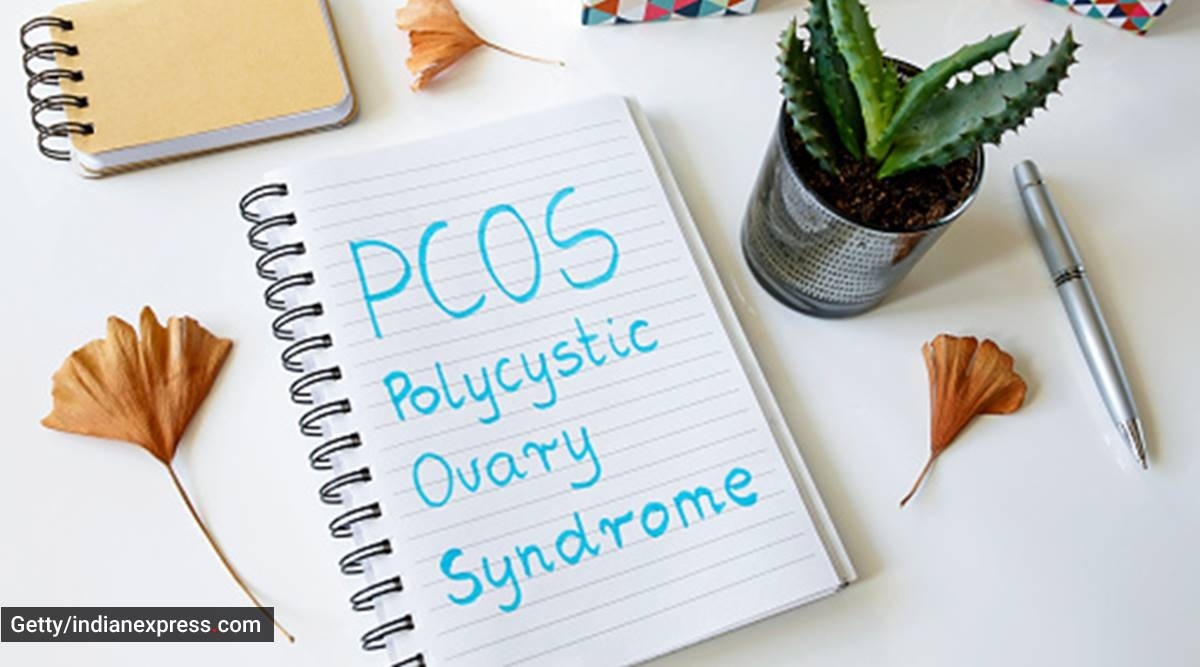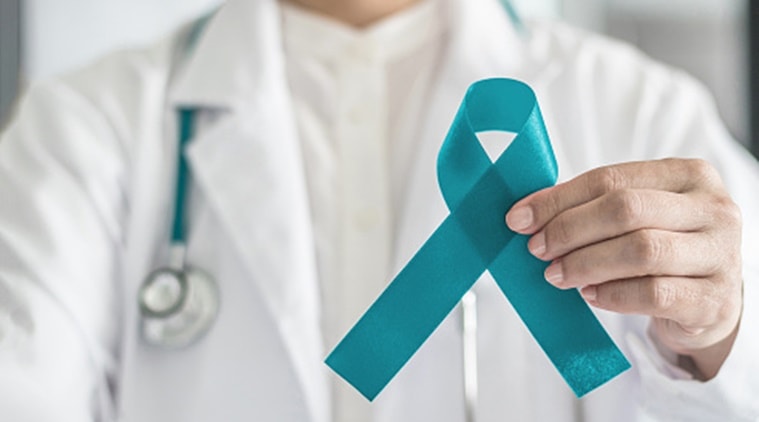While PCOS cannot be cured permanently, the symptoms can definitely be managed so that they don’t interfere with the quality of your life

Every year, the month of September is observed as Polycystic Ovarian Syndrome (PCOS) Awareness Month to raise awareness about the hormonal condition that usually affects women of reproductive age. The prevalence rate may reach, or even exceed 10–15 per cent, depending on the studied population and the applied diagnostic criteria, states bmcmedicine.biomedcentral.com.
Since untreated PCOS can put one at a higher risk of type 2 diabetes, high blood pressure, heart problems, and endometrial cancer, as well as infertility, it is pertinent to understand some basic facts and what can be done about the “heterogenous, multifactorial, complex genetic disorder” (as per a 2021-study in International Journal of Reproduction, Contraception, Obstetrics and Gynecology) that has a bearing on physical, mental and emotional health.
What is PCOS?
It is a condition where there is excess production of male hormones, the androgens, which is characterised by presence of multiple fluid-filled sacs called cysts in the ovaries. In this condition, the ovaries get enlarged and contain multiple follicles that surround the eggs which, in turn, create a hormonal imbalance.

“Due to hormonal imbalance, a woman experiences a range of symptoms such as menstrual irregularities, acne, excess facial hair growth (hirsutism), weight gain, hair loss, etc.,” said Dr Priyanka Marakini, senior nutritionist, HealthifyMe.
What causes PCOS?
While there are no clear reasons, experts suggest childhood obesity is a leading cause of PCOS. “With the dramatic increase in childhood obesity, which often leads to earlier onset menstruation, PCOS is starting to show up in younger girls. That means more years to live with the damaging health consequences of this syndrome that never goes away. It is a lifelong chronic condition,” said Natasha Pereira, consultant nutritionist, HealthifyMe.
Symptoms
PCOS can trigger a host of physical symptoms. “The hallmark of insulin resistance is higher which can have a serious toxic effect on hormone production in the ovaries,” said Pereira. However, the symptoms tend to differ from woman to woman.
How does it affect women’s lifestyles?
Excess androgen levels can cause male pattern hair loss, and facial hair growth which “may affect a woman’s appearance leading to low self-esteem,” said Dr Marakini.
“Hormonal imbalances can also lead to fluctuating sugar levels causing weight gain, sugar cravings and mood swings, leading to irritability, depression, anxiety and many more such issues affecting their daily activities. Many women with PCOS find it difficult to conceive and this causes more mental stress,” Dr Marakini added.
How does weight play a role?
Being overweight or obese is commonly associated with PCOS but even women who are lean can be prone to the condition. “It appears that between 50 to 80 percent of women with PCOS are overweight or obese. Certainly, there are both lean and obese women with PCOS; however obese women are more likely to be harmed by the syndrome’s health implications because of a slew of metabolic derangements. Many women with PCOS gain weight very easily and struggle more to lose it,” said Pereira.
Skin issues
Skin problems in women with PCOS are extremely common, brought on by increased levels of male hormones (androgens). Androgens increase the production of sebum (an oily substance secreted by the sebaceous glands in the skin), which increases inflammation and bacterial growth in the skin, causing acne, experts mention. “Seborrhea (flaky skin) and hidradenitis suppurtiva (inflammation of the sweat glands in the armpit and groin) are also common in PCOS, as is a particularly telling skin sign called acanthosis nigricans (AN). AN is a skin condition characterised by velvety, raised, pigmented skin changes most commonly seen on the back of the neck, armpits, groin, and beneath the breasts,” Pereira explained.

Since hormonal imbalance is affected by fat levels in the body, “losing weight as well as fat can help in controlling these symptoms”, experts recommended.
PCOS and pandemic: Does it have a relation?
The pandemic may not have a direct impact on PCOS, but “a lot of studies have shown that due to the increased levels of anxiety, stress and burn out owing to working from home has led to women becoming prey to a lot mental health issues,” remarked Pereira. “This, in a way, affects the choices they make with regards to their lifestyle and eating habits. Binge eating, late-night dinners, inadequate sleep and exercise can impact the hormonal balance in a big way and contribute to disturbances in the menstrual cycle as well.”
Dr Marakini said studies have shown increased intake of empty calorie foods have a higher impact on PCOS. With an increase in work from home, most people are today leading a more sedentary life than earlier. Research shows that women with PCOS are also at a higher risk of getting severe symptoms of infections possible due to low Vitamin D levels. Due to quarantine measures and being restricted at home, there is lower sun exposure as well.
Diagnosis
PCOS is commonly diagnosed using three clinical criteria or Rotterdam criteria, as per Dr Geeta Aurangabadkar, clinical director, and Dr Nimmi Mahajan, lead gynaecologist, Proactive For Her:
*Irregular periods including skipped periods, delayed periods, spotting and light periods
*Raised androgens which can look like hairfall, acne, hirsutism – excess coarse hair growth or raised androgens on lab reports: Raised testosterone (T), dihydrotestosterone (DHT) and dehydroepiandrosterone sulphate (DHEAS)
*Polycystic ovaries on ultrasound
“Having 2 out of 3 criteria should prompt you to consult a doctor for PCOS. Your doctor will rule out any other hormonal abnormalities – most commonly thyroid or prolactin abnormalities,” said Dr Mahajan.
Can women with PCOS get pregnant?
Some people state it is not possible to get pregnant when you have PCOS. “This is not true. While one needs to consult their healthcare provider to achieve hormonal balance which can be slightly challenging for some women, there have been many successful cases and it is definitely possible,” said Dr Aurangabadkar.
Treatment
Birth control pills are sometimes prescribed to regulate the hormones but “this isn’t a permanent solution to control PCOS”. “In such cases, the symptoms are just being overridden by the hormones in the oral contraceptives,” said Pereira.
Seeking treatment for the underlying cause and taking supplements suggested by the doctor, along with increasing proteins and iron in your diet are some of the measures that can help people with PCOS.
“Using a mild face wash with salicylic acid/ mandelic acid twice a day, while avoiding creams, massages and oils on the skin is a must. Following a good diet which is customised for you in consultation with a PCOS specialist nutritionist who understands your preferences; moderate exercises such as brisk walking, jogging, cycling or swimming; managing stress with the help of a mental health professional if required are needed,” said Dr Mahajan.
Experts mentioned one should aim to “start small” towards clean eating and an active lifestyle which helps increase self-confidence to lead a healthier life
What to include in your diet?
“Correcting the lifestyle is crucial”. Regular exercise, especially strength training exercises to help improve lean muscle mass helps regulate the hormones.
Adding protein-rich foods like pulses, lean meat, eggs, fish whey, soy free plant protein supplements, fresh fruits and vegetables, whole grains, nuts and seeds to the daily diet helps. Secondly, a consistent approach to have a balanced diet and exercise is what keeps the condition under control, said Dr Marakini.
As per Dr Aurangabadkar and Dr Mahajan, one should
*Eat more fruits and vegetables: 7-8 different vegetables and 3-4 different fruits over a week
*Opt for good quality starches: Millets, pseudo grains, rice, potatoes, sweet potatoes
*Swap animal protein for plant-based protein
*Choose ethically sourced dairy, poultry and seafood products
*Eat as per your hunger levels
*Eat what is locally available and eat what grows during that particular season
*Plan your meals ahead of time
What should be avoided?
Cutting down on simple carbohydrates from sugar, refined flour, processed foods, packaged snacks, fast foods, and bakery products play a very important role. “Some women can benefit from cutting gluten and dairy and can see some relief from inflammatory responses like acne and PMS (premenstrual syndrome),” said Dr Marakini.
PCOS and mental health
Since the common physical symptoms of PCOS are weight fluctuations, excess facial and body hair, hair loss, acne and challenges with fertility, many with PCOS experience body shaming – “both internalised and on part of well wishers who are ‘concerned’ about their health”.
“This may bring about negative feelings about the body which can make intimacy challenging. Please do not hesitate to talk to your doctor about how PCOS is impacting your sex life/your relationship with your partner. With the right kind of support, you will be able to find something that works for you,” said Dr Mahajan.
📣 For more lifestyle news, follow us on Instagram | Twitter | Facebook and don’t miss out on the latest updates!
📣 The above article is for information purposes only and is not intended to be a substitute for professional medical advice. Always seek the guidance of your doctor or other qualified health professional for any questions you may have regarding your health or a medical condition.
Source: Read Full Article





